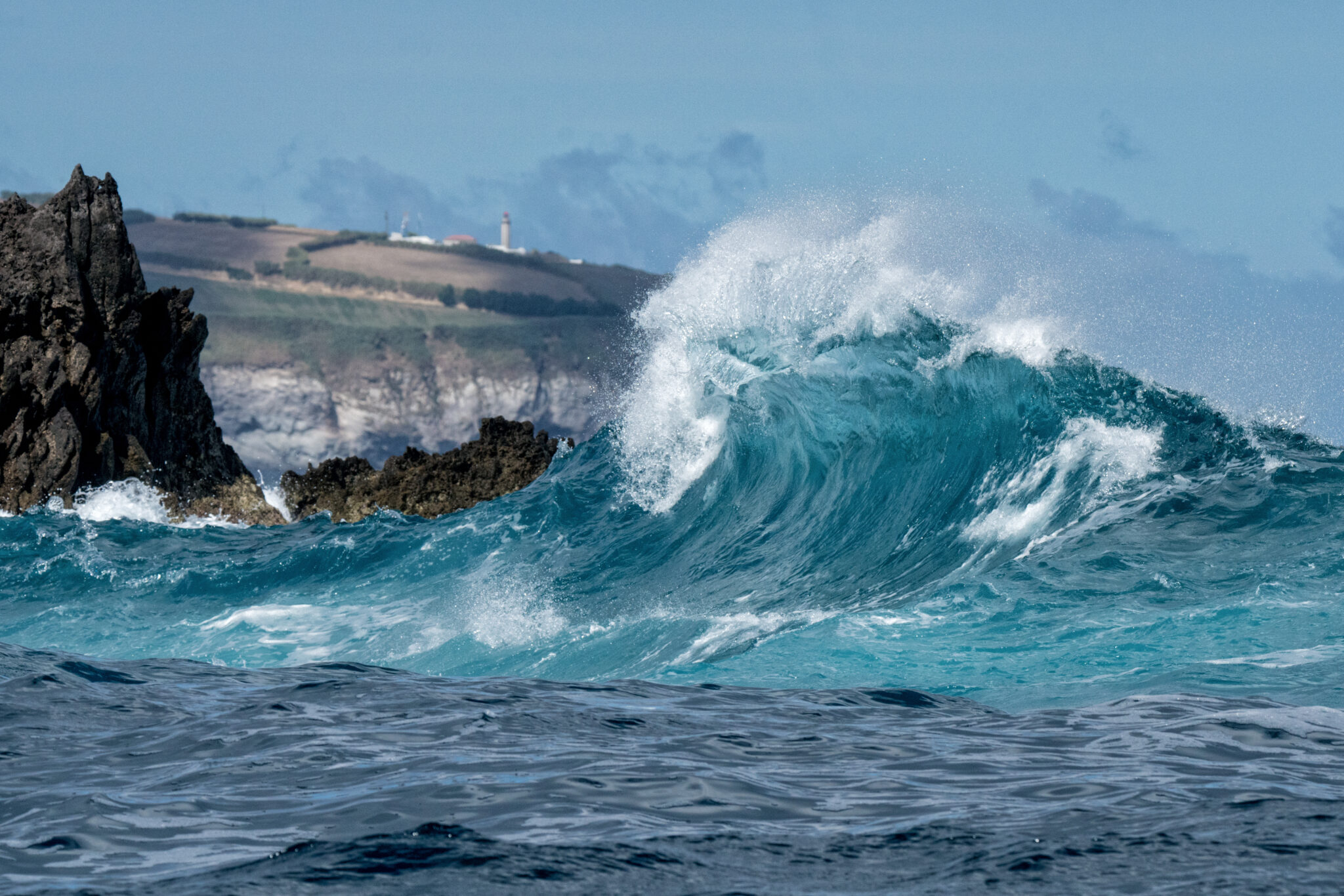
Welcome to the bi-weekly digest for IUCN Members and IUCN Commission members.
Message from the Director General

Dear Members,
Tomorrow I leave for Vancouver, Canada, for the Fifth International Marine Protected Areas Congress (IMPAC5), which opened strongly last Friday. IUCN is proud to co-host this event with the Host First Nations, the Province of British Columbia, and together with IUCN Members – the Government of Canada, and the Canadian Parks and Wilderness Society. I would also like to thank the World Commission on Protected Areas for their critical contributions to this convening.
IMPAC5 will allow us to chart a path to protect 30% of the ocean by 2030. I know that many rich discussions have already taken place, and look forward to meeting Members, Commission members, and IUCN partners in Canada. Together, we will address the decline in marine biodiversity and the climate crisis, and build a road towards a sustainable blue economy. I invite you to consult the list of IUCN events at IMPAC5.
This mission to Canada kicks off my travels for 2023. I will soon after head to Asia, where I will visit a number of countries to engage with our Membership and strengthen IUCN’s presence on the planet’s most populous continent. Indeed, I am eager to continue meeting you, dear Members, around the world to achieve our mission.
News
Outstanding conservationists honoured by IUCN
Wetlands at the heart of conservation: IUCN Pakistan marks World Wetlands Day 2023
Highlights and Next steps for Greening School Grounds and Outdoor Learning
CMS VATAVARAN Festival & Forum on Climate Action and Biodiversity Conservation celebrated in Bhutan
SADC TFCA Financing Facilitystories from the front lines
26 potential sites of conservation interest identified in Libya with support of the GEF MedProgramme
Pacific youths geared up for IMPAC5
TREPA project steering committee meets to review progress and plan for the quarter ahead
Re-imagining marine conservation through centering social equity
Events
5th International Marine Protected Areas Congress (IMPAC5) 3-9 February 2023 .
Programme available here.
UNESCO 45th session of the World Heritage Committee, postponed until further notice.
Resolutions and Recommendations
While the private sector can negatively impact nature, its activities heavily rely on nature and its services. In fact, at least half of the world’s GDP is linked to nature and biodiversity. By addressing their environmental footprint and investing in nature, economic actors can avoid potentially severe consequences for their activities and protect and restore nature. The private sector has thus a major role to play in conservation, as demonstrated by the many Resolutions, such as those presented below, which focus on business activities.
Resolution 7.054 Engaging the private sector to combat wildlife trafficking calls on the Director General, Commissions and Members to identify priorities for strengthening and expanding the private-sector initiatives and partnerships to fight wildlife crime. It also calls on Members to share case studies and lessons learned when engaging with the private sector to tackle this issue.
Resolution 6.060 Improving standards in ecotourism calls on IUCN Members and encourages governments and the tourism industry, among other stakeholders, to conduct transparent impact assessments and periodic monitoring of ecotourism and broadly share data for research and evolution of ecotourism best practices. It also encourages them to promote and seek auditing and certification for ecotourism in landscapes and seascapes of conservation value.
Resolution 6.061 Mitigating the impacts of oil palm expansion and operations on biodiversity requests the Director General, SSC, CEM and CEESP to conduct a situation analysis of the implications for biodiversity conservation from the expansion of oil palm, and to review and define best practices in the industry. It also urges Members to reduce the negative impacts of oil palm plantations in existing production areas by requiring compliance with laws through effective control, and to create mechanisms that support small-holders to improve environmental performance, among other things.
Resolutions and Recommendations constitute a means through which IUCN Members set the organization’s general policy, influence conservation priorities and find support for moving commitments into action. The whole Union is responsible for their implementation, and we invite you to submit your activity reports on theResolutions and Recommendations Platform to help us monitor their implementation. Everything you need to know to submit an activity report is in thisUser Guide. Many thanks for your contributions!
IUCN@ the Conference of the Parties
COP15: IUCN welcomes Post-2020 Global Biodiversity Framework as an important step towards addressing the nature crisis. Read more here.
Post-2020 global biodiversity framework (issues brief)
BIODEV2030Inspiring national action
BIODEV2030 propose a method to accelerate the mainstreaming of biodiversity into key economic sectors in 16 pilot countries, based on a scientific diagnosis and a participatory dialogue.
Learn more about the experience of stakeholders from Benin and Tunisia in this video: Biodiversity mainstreaming: the BIODEV2030 method presented by stakeholders – BIODEV2030
Opportunities
Call for solutions on Wildlife Health and Zoonotic Disease Risk Reduction
A Challenge to Reimagine Conservation in 2022
Online Learning and Webinars
IUCN Library – ORCiD workshop, an open, community-driven platform that provides a unique identifier for researchers, showcases your research outputs and increases your visibility, as well as can connect you with other IUCN researchers.
Session 1: 09.00 – 10.00 CET (HQ time) – Teams linkSession 1
Session 2: 15.00 – 16.00 CET (HQ time) – Teams linkSession 2
SSC Conservation Planning Specialist Group (CPSG) trainings. For more information, click here.
Human-Wildlife Conflict & Coexistence – Learning in Practice Webinar Series
Blue Natural Capital Financing Facility (BNCFF)Investing for Ocean Impact, Podcast
Webinar: NASA’s AppliedEvaluating Ecosystem Services with Remote Sensingonline series
GBV-ENV Center webinar: Engaging men and boys to address GBV in coastal biodiversity management
RedList trainer course – Become a certified RedList trainer
WCEL Webinar Series: “The Transformative Power of Law: Addressing Global Environmental Challenges”
Newsletters
The World Commission on Protected Areas (WCPA)Bulletin February 2023
Commission on Education and Communication (CEC)Newsletter February 2023
Commission on Environmental, Economic and Social Policy (CEESP)Newsletter December 2022
Commission on Ecosystem Management (CEM)Newsletter December 2022
IUCN SSC Human-Wildlife Conflict & CoexistenceNewsletter, December 2022
IUCN Marine News MagazineIssue 17
IUCN Asia’s Quarterly Newsletter
Other
Guidelines for using A global standard for the identification of Key Biodiversity Areas: version 1.2
Enhancing the integration of governance in forest landscape restoration opportunities assessments
Guidance and toolkit for impact assessments in a World Heritage context
IUCN BlogCrossroadsLatest blog – The private sector can (and should) lead the way on nature-positive
This Digest aims to keep IUCN Members, IUCN staff, IUCN Commission member and the wider IUCN network up-to-date with IUCN information and opportunities.



